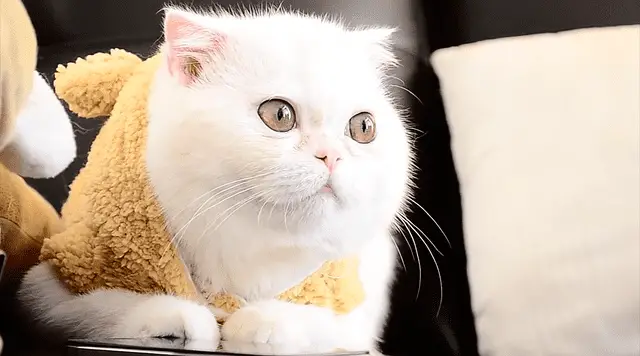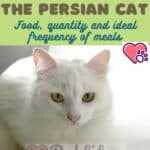
What foods to give to your four legs? What are the recommended quantities? All the info on the ideal nutrition of the Exotic Shorthair.
The foods that we give to our little dog every day have a fundamental role in his well-being and serenity. For this, it is essential to plan a healthy, balanced and nutritious diet for our Exotic Shorthair, so that this cat lives for a long time and health. Let’s find out what you need to know about it.
Nutrition of the Exotic Shorthair: quantity and frequency of meals
In order for the Exotic Shorthair’s diet to be able to provide him with the energy necessary to face his days with determination and energy, it is advisable to reflect on how much and when to feed this furry dog.
Regarding the ideal doses of food to be administered to the exotic cat, this is a particularly important factor, because the specimens of this breed are predisposed to the accumulation of excess weight.
Therefore, it is advisable to identify the quantities of food that can satisfy the nutritional needs of this cat and, at the same time, contribute to the maintenance of its ideal weight.
For this, the best advice is to contact the veterinarian, who will be able to formulate a diet specially created for the four-legged, based on parameters such as age, health and lifestyle of the cat.
When to feed the Exotic Shorthair? Generally, it is recommended to feed your pet twice a day, once in the morning and once in the evening.
Alternatively, however, you can decide to divide the cat’s daily ration into small portions, to be given to him during the day.
What to feed the exotic cat

Finally, we just have to find out which foods are included in the ideal diet of the Exotic Shorthair.
Of course, just like any other member of its species, the exotic cat is an obligate carnivore. Therefore, his diet must be mainly based on the intake of products of animal origin.
In particular, the cat should eat chicken, beef, rabbit. The administration of fish is also indicated, albeit less frequently than meat.
In this case, the most suitable foods include cod, anchovies, sole and salmon. Depending on your preferences, you can choose between a homemade diet for the Exotic Shortair, or a diet based on industrial feed.
In the first case, it is essential to contact the veterinarian to formulate balanced meals complete with all the essential nutrients for the cat. The risk of food shortages, in fact, is very real.
If you decide to buy ready-made foods, remember to always read the labels, to understand the quality of the feed chosen from the nutritional composition and ingredients present.
Finally, one last tip is to prefer wet food to dry food. The reason lies in the particular conformation of the muzzle of the exotic cat.
The brachycephalic snout, inherited from the Persian, causes him not only breathing problems, but also difficulties in chewing and swallowing.
Choosing foods that are soft, and therefore easier to swallow, can help the Exotic Shorthair reduce its problems when feeding.






